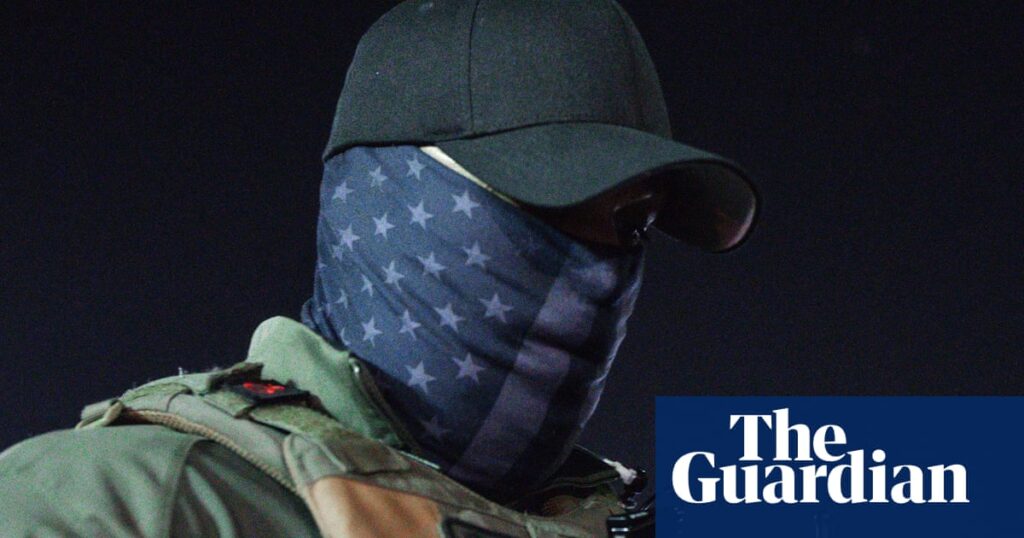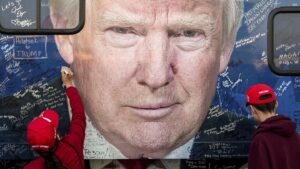
WASHINGTON, D.C. – The increasing use of masks by federal immigration officers during operations has raised alarms about the erosion of democratic norms in the United States. Across the nation, officers have been spotted donning balaclavas, neck gaiters, and casual attire while conducting immigration raids, arresting protesters, and confronting critics. This trend has prompted concern among civil rights advocates and law enforcement experts.
Immediate Impact
Former FBI agent Mike German described the widespread use of masks as unprecedented in U.S. law enforcement history, suggesting it signals a shift away from democratic oversight. “Masking symbolizes the drift of law enforcement away from democratic controls,” he stated.
The Department of Homeland Security (DHS) defends the practice, citing officer privacy and an alleged increase in violence against agents. However, critics argue that the lack of transparency undermines public trust.
“When it’s hard to tell who a masked individual is working for, it’s hard to accept that that is a legitimate use of authority,” German noted.
Key Details Emerge
Mike German, now a fellow at the Brennan Center for Justice, spoke about the implications of officer masking and the potential for imposters to exploit the situation. He emphasized the importance of officers identifying themselves, especially during arrests, to maintain public confidence in law enforcement.
Historical Context
German highlighted the absence of precedent for such widespread masking in U.S. policing, likening it to practices in police states. He attributed the trend to post-9/11 changes in law enforcement, including the expansion of surveillance and intelligence-led policing.
The creation of roughly 80 fusion centers has led to increased secrecy and targeting of protest groups.
Expert Analysis
German speculates that some officers may mask their identities due to reluctance to be associated with immigration enforcement, particularly when diverted from other federal agencies like the FBI and ATF. This reluctance, he argues, underscores the perceived illegitimacy of certain enforcement actions.
Law Enforcement Standards
Traditionally, law enforcement officers are expected to clearly identify themselves during public operations. German, reflecting on his FBI experience, emphasized the importance of transparency to ensure safety and accountability.
“The badge was intended to protect the officer, to make it clear you’re acting under the authority of the law,” he explained.
What Comes Next
Legislative efforts are underway, with some Democratic senators urging ICE to mandate agent identification. California lawmakers have proposed banning law enforcement masking on duty, arguing that public servants should be recognizable.
However, German stresses that leadership within law enforcement agencies is crucial to enforcing accountability. He cautions that without strong leadership, legislative measures may fall short.
Ongoing Consequences
The practice of masking poses a public safety threat, as it blurs the line between legitimate officers and potential imposters. Recent incidents, such as the shootings of two Democratic lawmakers by a suspect impersonating an officer, highlight these dangers.
“Federal agents wearing masks and casual clothing significantly increase the risk of imposters,” German warned.
As the debate continues, the future of law enforcement practices in the U.S. hangs in the balance. The need for transparency and accountability remains at the forefront of discussions among policymakers and the public alike.






